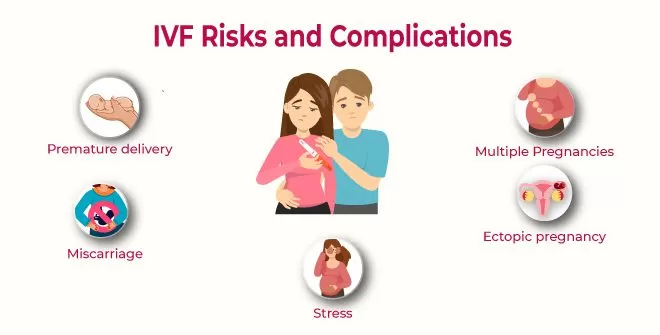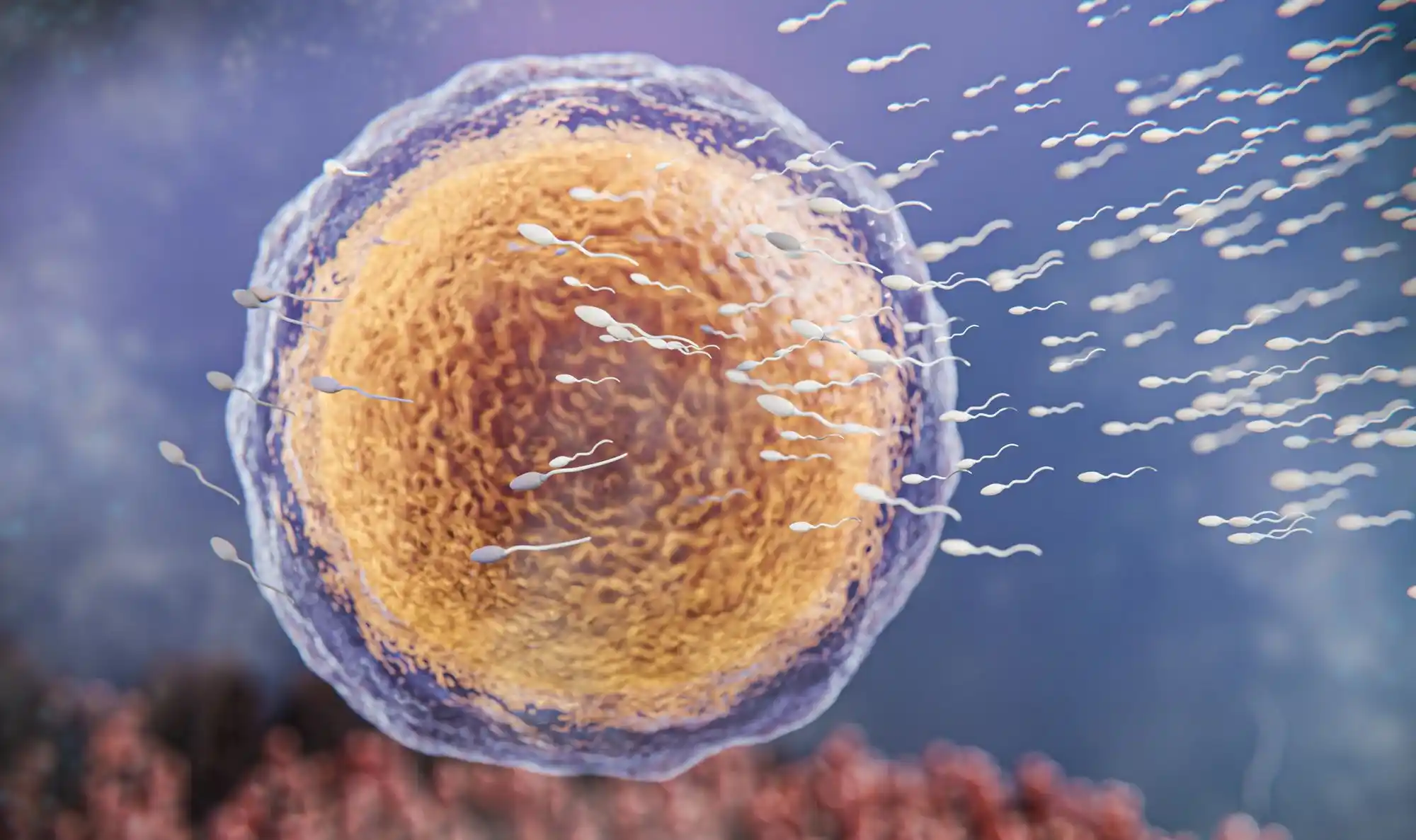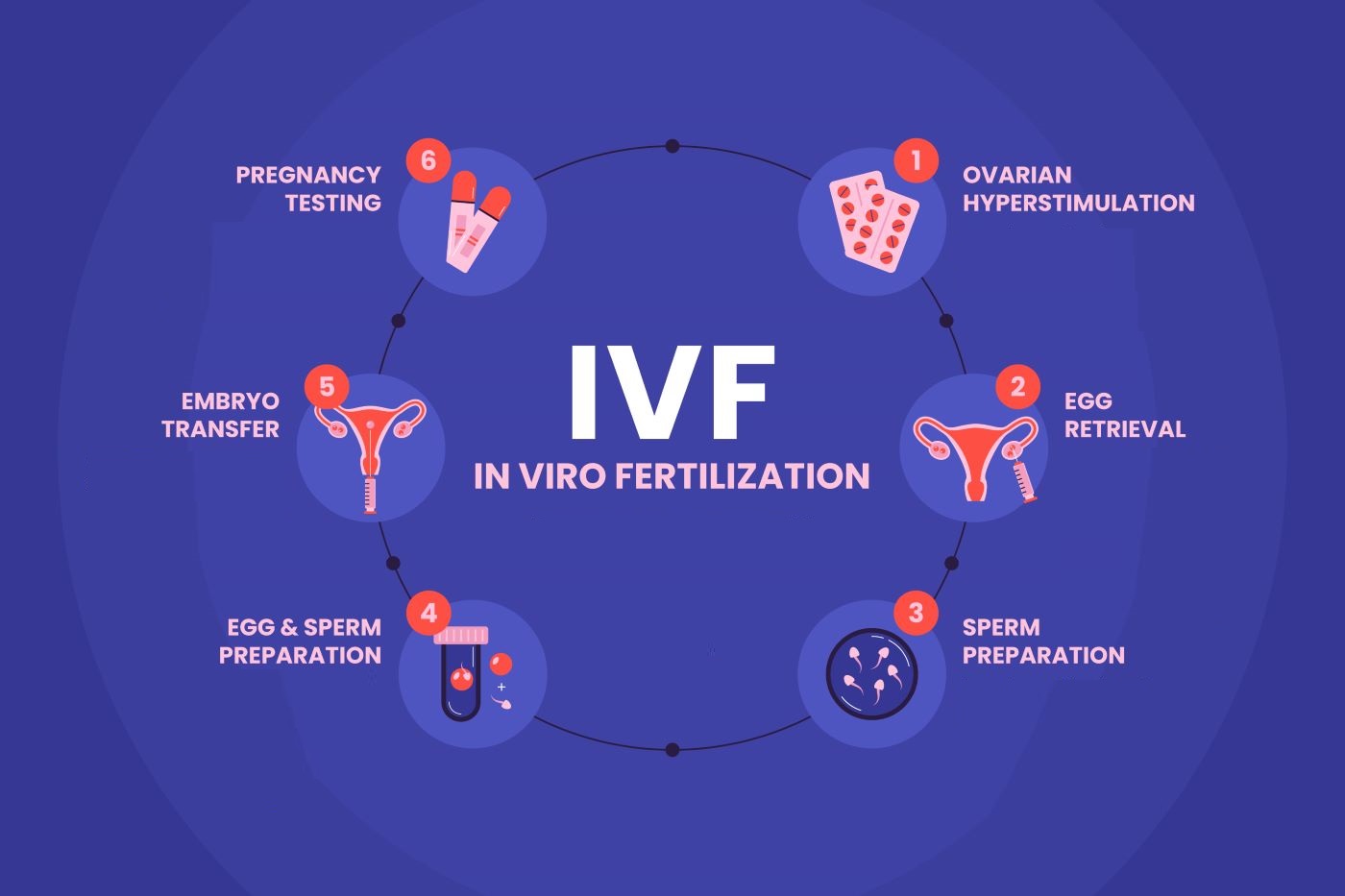Why is IVF done?
IVF is an infertility treatment often opted by couples that face problems in having a baby. IVF is usually opted after trying other simpler methods, like taking certain drugs to increase egg production or choosing IUI, where the sperm is directly transferred in the woman’s uterus.
IVF is one of the most effective ways of assistant reproductive techniques. It is used when natural fertilization does not take place in the body. So the only option left is to do that fertilization process in the lab. There are various reasons for which IVF is required or can be helpful. These reasons include:
- Reduced fertility because of increasing age in women.
- Reduced eggs in the ovaries (decreased ovarian reserve) in the female.
- Endometriosis
- Cholesterol and lipid tests
- Critical Care Medicine Specialists
- Emergency Assistance
How to Prepare for IVF
Once you decide you need the help of a fertility specialist, the first thing to keep in mind is to choose a proper fertility clinic. The IVF success rate depends upon a lot of things like the experience of the IVF team, quality of the lab, the reputation of the center, the methods they choose, the overall success rate of the procedure, etc.
After choosing an IVF clinic and getting a consultation, the process starts with an ovarian reserve test in which your doctor takes your blood sample to check for the level of Anti-Mullerian hormone (AMH). This test indicates the size and number of eggs in a female body. Your doctor can also do a transvaginal ultrasound to check for the number of eggs in the ovaries ( known as antral-follicular count).
Ultrasounds besides checking your ovarian health also rule out other diseases of the reproductive organs. This examination helps a doctor to check the uterus health and rule out cysts and fibroids. Besides a few other hormone tests and infection screening tests could be done on your first visit.
Meanwhile, the male partner will be asked to give a semen sample for sperm analysis that will tell about the quantity and the quality of sperms. If the sperm is weak, then a different procedure called intracytoplasmic sperm injection may be required as part of the IVF process.
Now, after all these tests and investigations, the doctor will tell you what will be the best treatment option and if IVF is advisable. In case that he says yes, it’s your choice to go for the same or not. For all other queries related to IVF, you can ask them at the initial stages.
IVF Procedures Step By Steps
The entire Test Tube Baby Process contains different stages and steps that are performed one after the other. All these steps are:
Ovarian Stimulation: The first step of the IVF procedure includes the stimulation of the ovaries. During a normal menstrual cycle, a woman produces just one egg.
But an IVF process requires multiple eggs to result in a good embryo. Your doctor will give you certain fertility drugs and injections starting from day two to day three of your periods to increase the egg production in your ovaries.
After giving those drugs, the doctor will monitor the egg production and decide the best time to retrieve the eggs by the means of serial or sequential ultrasounds.
Egg Retrieval: Once the doctor finds that there is enough production of eggs in the ovaries, he will then perform the second step which is the retrieval of eggs.
Once the eggs get mature, a trigger injection is given ( HCG injection usually) and retrieval of the egg is planned between 34 to 36 hours post the trigger injection.
For this, the doctor (anesthetist) will give you anesthesia and use an ultrasound wand to make the needle reach the follicles that contain eggs. This needle will suction the fluid and the eggs from each follicle.
Fertilization: The next step in this process is of fertilizing the eggs and the sperms. Now, for this process, two ways can be used. Firstly, the doctor will mix the eggs and the sperms in a petri dish and the sperms will naturally fertilize the eggs overnight. But in this process, there’s a risk that if the sperms are weak, the fertilization may not occur. In the other process known as ICSI, the embryologist will select the best sperm and inject it into the egg for fertilization of the egg.
Embryo Culture: This step is a monitoring step in which the embryologist will monitor the embryos to see if they are developing and dividing. The embryo will divide into multiple forms and then make a blastocyst on day fifth. This is the stage where the embryo is ready to transfer and get implanted in the uterus. By doing a blastocyst transfer, we select the best embryo for transfer in the uterus.
Embryo Transfer: Once the embryos have grown into a blastocyst, they get ready to get implanted in the cavity of the uterus. This is the final and the most important step of the IVF procedure. The doctor uses a fine catheter and inserts it into the uterus. At last, the doctor releases the embryo in it.
Pregnancy support: Now, it seems like the process may end here, but the pregnancy results after the embryo get implanted on its own. The implantation takes 5-10 days in most IVF cases. This last stage is about pregnancy support where the patient is given doses of regular progesterone and other medical support.
IVF Risks and Complications
The IVF procedure also has some risks and complications a couple should know. Some risks are:
Premature Delivery: It is often seen that the pregnancies done through IVF may sometimes result in premature delivery. The baby gets delivered before the standard time of 40 weeks and also has low birth weight.
Multiple Pregnancies: If your doctor transfers over one embryo in the uterus then there are chances of having multiple pregnancies. Now multiple pregnancies can come with a lot of complications like preterm labour, low birth weight of the baby, etc. But some couples who have been trying to have a baby for a long time can also prefer having twins. You can consult this with your doctor.

Miscarriage: The miscarriage chances with IVF pregnancy are 15-20% which similar to that of natural pregnancy. This chance increases with increasing maternal age.
Ectopic pregnancy: It is a kind of pregnancy in which the embryo gets implanted outside the uterus and it happens in 2 to 5% of the women who go for IVF. This type of pregnancy can not be continued.
Stress: Choosing an IVF procedure can come with emotionally, physically, and
financial stress. It is normal to feel all sorts of mixed emotions but one must keep herself
stress-free all the time.
Try to relax by doing whatever you love, for example by doing yoga, watching comedy shows,
doing fun activities as a couple of activities to stay stress-free.
IVF Results
After 15 days to two weeks of the egg retrieval process, the doctor will take a blood sample to detect if you are pregnant. The results can tell us two things, first that you are pregnant or the other one that you are not.
So, in case the test is positive and you are pregnant, your doctor will recommend you to consult further for prenatal care.
And in case the pregnancy test is negative, your doctor will ask you to stop the consumption of progesterone and other medications.
You may have your regular periods next month. If you notice unusual bleeding during your periods, Consult your doctor at the earliest.
If your tests are positive, congratulations, your little bundle of joy is just nine months away. But, if your tests are negative, don’t lose your hopes because IVF doesn’t have a 100% success rate. In case your first cycle fails, you can go for other cycles as well. Don’t get disheartened and stressed by the negative results.
There are a lot of IVF cases in which the first cycle becomes successful but some couple needs more than one cycle to get pregnant. In case of failure, one needs to troubleshoot and try and rectify then. Also, always be positive because then positive things come to you.



